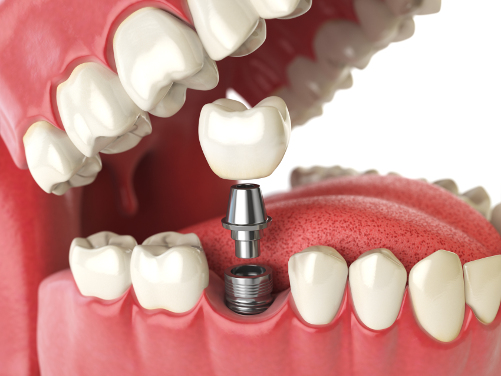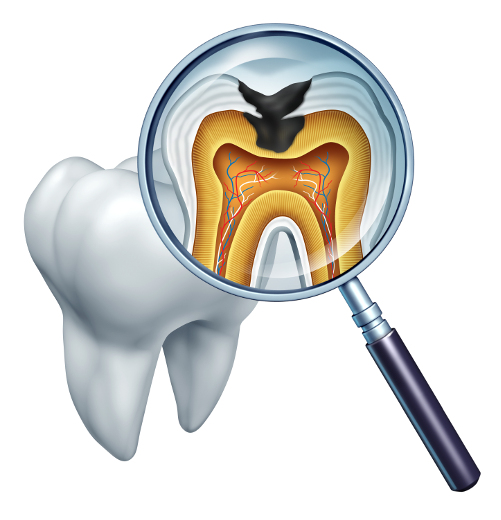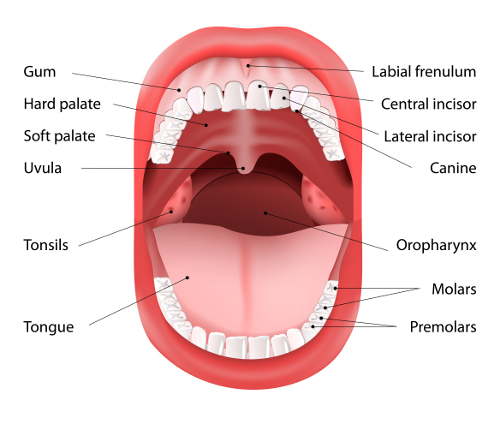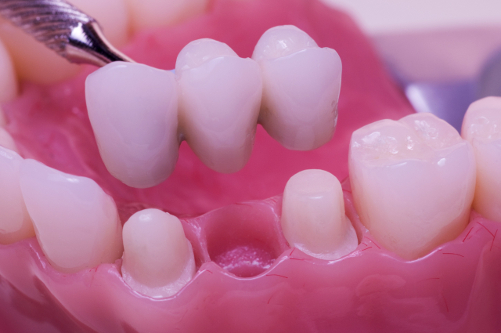5 Reasons to Say “Yes” to Dental Implants
-

You have a number of restorative options when it comes to replacing missing or damaged teeth. Bridges, dentures and crowns are strong and effective options, but if you’re looking for the ultimate in aesthetics and functionality, it’s tough to compete with implants.
Dental implants can restore your smile if you lost teeth as a result of tooth decay, root canal failure, gum disease, oral trauma, excessive wear and tear or even congenital defects. While it’s true that there’s no substitute for a healthy, natural tooth (check out our article on the importance of saving your teeth) implants are viewed by most dental professionals as the next best thing.
If you’re in need of a restorative dental solution, here are five reasons that you should say “yes” to dental implants.
-
1. Durability

Dental implants are far and away the strongest and most durable restoration available for missing or severely damaged teeth. That’s not to say that other restoratives don’t offer durability. Simply that implants are even better.
A tooth-supported dental bridge can last anywhere from five to 10 years before needing to be replaced. Dentures can last five to seven years. By comparison, implants can last from 25 to 40 years before replacements may be needed. (Although the associated crown will likely need to be replaced sooner.) Implant patients 40 and older should be able to have that restoration for life if they maintain good oral hygiene and avoid smoking, which can weaken the jawbone.
Although implants tend to be considerably more expensive than other restorative options, their durability makes them a more economical solution over the long term.
-
2. High Success Rate

The dental implant procedure is among the most successful restorative procedures in dentistry. Part of this can be attributed to the fact that patients must first be approved for treatment by their dentist (courtesy of a thorough oral health examination). Candidacy may be affected if you are a smoker or taking immune-suppressants, as both can increase the likelihood of implant failure.
The five-year success rate for lower jaw implants is approximately 95 percent, with the success rate for upper jaw implants falling slightly lower, at 90 percent (the upper jaw is less dense than the lower jaw). Adhering to your dentist’s post-implant instructions and practicing good oral health will increase your chances of a successful, durable implant experience.
-
3. No Cavities

One of the major benefits of implants is that an implant-supported crown cannot develop cavities. The vast majority of implants are titanium alloy, with a small percentage being composed of a metal-free zirconium. The implant itself replaces the tooth root, meaning that there is no natural tooth structure left to become impacted by decay. Bridges, on the other hand, are often anchored on a natural tooth structure that has been “prepared” to serve as a support. This natural tooth support is therefore susceptible to decay underneath the bridge the same as any other tooth.
That’s not to say that you won’t need to care for your implant (you will still be advised to practice excellent oral health), but rather that you need not worry about cavities affecting the durability or health of your implant-supported restoration.
-
4. Adaptability

It is far easier to provide a restorative solution to missing molars or premolars than it is to restore missing incisors and canines. These teeth are the most observable part of your smile, making the esthetics that go into fabricating the restoration incredibly important. They also tend to be smaller and narrower than molars, meaning that spacing can be problematic for something like a bridge. Veneers can be an excellent solution for damaged incisors or canines, but in the case of missing teeth, implants remain the best option. Mini dental implants are approximately half the size of their traditional counterpart and can be a perfect fit for replacing small teeth or incisors. Mini implants are also less costly than their bigger brother and do not require the same depth of submersion in the jawbone.
-
5. They Stand Alone

Arguably the best quality of a dental implant restoration is the fact that it is a self-contained solution for a missing tooth. The implant screw is surgically placed into the jawbone where it fuses naturally with the bone (a process called osseointegration). An abutment caps the screw and a crown is attached on top as the visible tooth replacement. All of this is done within the space left by the missing tooth.
Alternatively, a dental bridge must be anchored on an adjacent tooth in order for it to be supported. In order to serve as a support, this adjacent tooth must be shaped, permanently altering it. It’s always better to preserve a healthy tooth rather than to replace it. So the idea of potentially altering a perfectly healthy tooth in order to serve as a support for a bridge is less attractive than an implant, which can be more aesthetically pleasing and longer lasting.
-
Contact an Implant Dentist

The best way to determine if a dental implant solution is right for you is to set up a consultation with a qualified implant dentist. Many practices offer free consultations, during which time you can evaluate whether you are a candidate for implants, or if an alternative restoration is a better fit for you.








